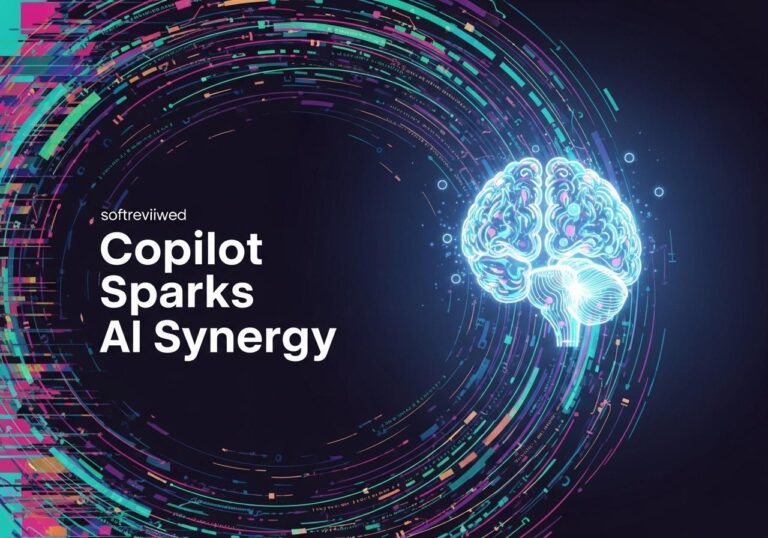AI Regulation and Ethics
Key aspects of regulating AI development and ensuring ethical practices
AI Regulation
US and EU commit to regulating AI developers to prevent unfair market domination and ensure responsible AI development.
AI Ethics
Emphasize accountability, transparency, and ethical frameworks in AI development to ensure responsible and beneficial AI systems.
Global Cooperation
Foster global cooperation between industries and governments to create unified AI standards and promote responsible AI development worldwide. This collaboration can ensure that AI technologies are developed with a shared commitment to ethical guidelines, transparency, and fairness, reducing the risk of misalignment between nations. Initiatives like the Global IndiaAI Summit can serve as a platform for stakeholders to engage in dialogue, share best practices, and drive innovation responsibly. By fostering international partnerships, we can create a safer, more inclusive AI ecosystem that benefits all of humanity.
AI for Good
Harness AI for social good and solve pressing global challenges, focusing on applications that benefit humanity and the environment.
Continuous Monitoring
Regularly assess and evaluate AI systems for bias, discrimination, and unintended consequences to ensure ongoing ethical compliance.
The artificial intelligence (AI) landscape is experiencing a significant shift as US and European regulators join forces to promote effective AI competition. This groundbreaking collaboration, announced on July 23, 2024, aims to create a more innovative and responsible AI ecosystem. Let’s explore the implications of this joint statement and its potential impact on the future of AI development.
The Power of Collaborative Regulation
The partnership between US and European regulators marks a crucial step towards a unified approach to AI governance. By signing a joint statement on effective AI competition, these regulatory bodies acknowledge the global nature of AI development and its far-reaching consequences.

Key Objectives of the Joint Statement
- Foster competitive markets in AI
- Drive innovation and efficiency
- Ensure alignment with social values and legal frameworks
- Promote global cooperation in addressing AI challenges
- Stimulate responsible AI applications
This collaborative effort demonstrates a growing recognition of the need for cross-border coordination to tackle the complex issues surrounding AI development and deployment.
Fostering Innovation Through Competition
One of the primary goals of this joint regulatory effort is to create an environment that encourages innovation in AI. By promoting effective competition, regulators aim to:
- Stimulate the development of cutting-edge AI technologies
- Improve the efficiency of existing AI systems
- Encourage the creation of novel AI applications
- Drive down costs associated with AI development
A competitive AI market can lead to more rapid advancements and a wider range of AI solutions available to businesses and consumers alike.
Aligning AI with Social Values and Legal Frameworks
While fostering innovation is crucial, the joint statement also emphasizes the importance of ensuring that AI development aligns with societal values and legal standards. This focus addresses growing concerns about:
- AI bias and fairness
- Privacy protection
- Ethical use of AI technologies
- Transparency in AI decision-making processes
By incorporating these considerations into the regulatory framework, the US and European authorities aim to create a more trustworthy and responsible AI ecosystem.
The Global AI Market: A Rapidly Growing Sector

The timing of this joint statement is particularly significant given the explosive growth of the AI market. According to recent market research:
- The global AI market is expected to reach $190.61 billion by 2025
- The AI regulatory market is projected to grow at a CAGR of 14.3% from 2022 to 2027
These statistics underscore the importance of establishing effective regulatory measures to guide the development and deployment of AI technologies.
Potential Benefits of the US-EU AI Competition Agreement
The collaboration between US and European regulators has the potential to yield numerous benefits for the AI industry and society as a whole:
1. Accelerated Innovation
By fostering a competitive environment, the joint statement could lead to:
- Faster development of AI technologies
- More diverse AI applications across various industries
- Increased efficiency in AI systems
2. Responsible AI Development
The emphasis on aligning AI with social values and legal frameworks may result in:
- Reduced bias in AI algorithms
- Improved fairness in AI-driven decision-making
- Enhanced privacy protection for users of AI technologies
3. Global Standardization
This collaborative effort could pave the way for:
- Establishment of global standards for AI development
- Consistent regulatory approaches across different regions
- Simplified compliance processes for AI companies operating internationally
4. Economic Growth
The promotion of effective AI competition may lead to:
- Increased productivity across various sectors
- Creation of new job opportunities in AI-related fields
- Boost in economic output driven by AI technologies
Challenges and Concerns
Despite the potential benefits, the implementation of this joint regulatory effort faces several challenges:
1. Balancing Regulation and Innovation
Finding the right balance between regulatory oversight and fostering innovation remains a significant challenge. Critics argue that overly strict regulations could:
- Stifle creativity in AI development
- Create barriers to entry for smaller companies
- Slow down the pace of technological advancement
2. Addressing Existing Biases
Eliminating biases in AI systems is a complex task that requires:
- Careful examination of training data
- Development of robust testing methodologies
- Ongoing monitoring and adjustment of AI algorithms
3. Ensuring Fair Competition
Promoting effective competition while preventing monopolistic practices in the AI industry will require:
- Careful market analysis
- Proactive measures to support smaller players
- Ongoing assessment of market dynamics
Expert Opinions on the US-EU AI Competition Agreement
Industry experts and regulatory officials have weighed in on the significance of this joint statement:
“We need to ensure that AI is developed and used in a way that benefits everyone, and we can only do that by working together.” – European Regulator
This sentiment reflects the growing consensus that international cooperation is essential for responsible AI development.
Future Implications and Potential Impacts
The joint statement on effective AI competition could have far-reaching consequences for the future of AI:
1. Establishment of Global AI Standards
The collaboration between US and European regulators may lead to:
- Creation of universally accepted AI development guidelines
- Harmonization of AI regulations across different regions
- Simplified compliance processes for international AI companies
2. Acceleration of AI Adoption
By fostering a competitive and responsible AI ecosystem, this agreement could result in:
- Increased trust in AI technologies
- Wider adoption of AI across various industries
- More rapid integration of AI into everyday life
3. Enhanced International Collaboration
The success of this joint effort may inspire:
- Further cooperation between other countries on AI regulation
- Creation of global AI governance bodies
- Increased sharing of AI research and best practices
Preparing for the Future of AI Regulation
As the regulatory landscape for AI continues to evolve, businesses and individuals involved in AI development should consider the following steps:
- Stay informed about regulatory changes and updates
- Actively participate in discussions and consultations on AI governance
- Implement ethical AI development practices
- Invest in bias detection and mitigation techniques
- Foster a culture of transparency and accountability in AI projects
- Collaborate with other stakeholders to address common challenges
- Prioritize user privacy and data protection in AI applications
Conclusion: A New Era of AI Governance
The joint statement on effective AI competition signed by US and European regulators marks a significant milestone in the evolution of AI governance. By fostering innovation while emphasizing responsible development, this collaboration has the potential to shape the future of AI in profound ways.
As we move forward, it will be crucial for all stakeholders – from regulators and developers to businesses and consumers – to work together in creating an AI ecosystem that is both innovative and aligned with societal values.
To stay informed about the latest developments in AI regulation and competition, consider following reputable sources such as the official websites of regulatory bodies and industry publications. By staying engaged and proactive, we can all contribute to the responsible advancement of AI technologies that benefit society as a whole.
What are your thoughts on this US-EU AI competition agreement? How do you think it will impact the future of AI development and deployment? Share your opinions and join the discussion on this important topic.







